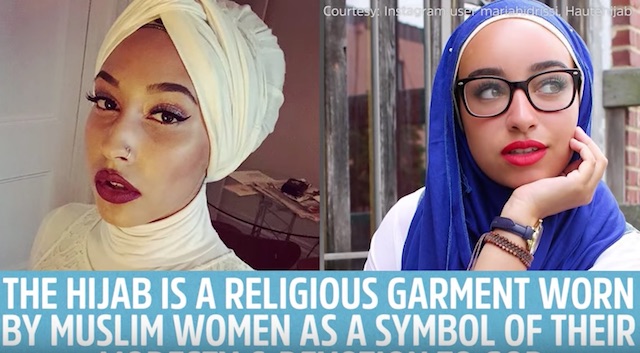Muslim women are more visible now than ever thanks to globalization and technology.
Many of these women have chosen to wear the hijab for various personal reasons. Despite the intimate nature of the hijab, many public opinions surround this simple garment—both positive and negative.
Regardless of the polarity of our individual perceptions toward the hijab, I believe that there are many lessons we can learn from women who chose to veil their hair.
The hijab is not the “bad guy.”
The hijab doesn’t deter a woman from materializing her dreams and doing what she wants. Olympic bronze medalist Ibtihaj Muhammad, singer-songwriter Yuna and Muslim scholar Dalia Mogahed are just a few examples of awesome modern hijabis who have achieved success while wearing their hijabs.
Their accomplishments show that the hijab is not a deterrent from living life to the fullest.
These women prove that it is possible to balance the life of this world and the hereafter. The key message they project is that if we pursue our passion and talents while upholding our beliefs, we can succeed—no matter what we wear.
Often, a modern hijabi may need to turn a negative experience into a positive opportunity.
South Koreans have always been warm and friendly toward me whenever I visit the country; therefore, it was shocking when a middle-aged Korean woman confronted me about my hijab (I had not been wearing the hijab in my earlier trips).
In highly homogenous communities, an odd-looking person will stick out like a sore thumb; experiences like mine often leave women feeling vulnerable and afraid in their choice of clothing. They may find themselves shamelessly stared at, isolated and discussed.
I took my ability to “blend in” for granted when I traveled, but I now understand the hostility that hijabi women experience when they travel to places where Islam is unfamiliar.
However, this negative experience has given many modern hijabis the opportunity to turn around misperceptions surrounding them. Women like Lamia Arafa are taking the time to educate people about Islam instead of allowing negative experiences to consume them. It is empowering to turn what could be a debilitating situation into something enriching for ourselves and our communities.
In my decision to wear the hijab, I’ve learned that it’s okay to transition slowly.
Transitions are hard; therefore, it’s perfectly acceptable to take baby steps—even if we feel like the progression is slow. Overwhelming ourselves with drastic changes may not be the best idea. Slowly shifting into the next stage of our life will allow us and the people around us the opportunity to know and love the “new” person we are becoming.
After I embraced Islam and decided to dress modestly, my sister-in-law told me the hardest part of complying 100 percent with the Islamic dress code is not overhauling my entire wardrobe, but simply wearing the hijab publicly.
It’s more than a piece of cloth worn around the head; it’s (hopefully) a long-term commitment. Thus, she told me, if and when I decided to wear the hijab, it wouldn’t be necessary to purchase all the abayas I could get my hands on. Rather, my sister told me to pull on a cardigan, jacket or coat over my skinny jeans and tank tops for a more modest look. Creating a new “normal” for myself would make it easier for not only myself, but for the people around me.
Since transitioning, I have found lessons everywhere.
I consider myself lucky, because I come from a culture that gives me the right to make my own choices and doesn’t dictate how I should practice my beliefs.
Like many modern hijabis, I believe that the hijab is not a form of oppression, but a feminist statement. Hijab-wearing Muslim women don’t need to be saved; they are already bold in voicing their opinions and fighting for their rights.
They are not as timid, quiet and conservative as the Western world would like to think. Even if they are oppressed, these amazing women find strength to relentlessly stand up for what they believe in (think: Malala Yousafzai), and I think we could all learn something from them!
~
Author: Sarah Ghanem
Image: YouTube
Editor: Toby Israel
~











Read 0 comments and reply